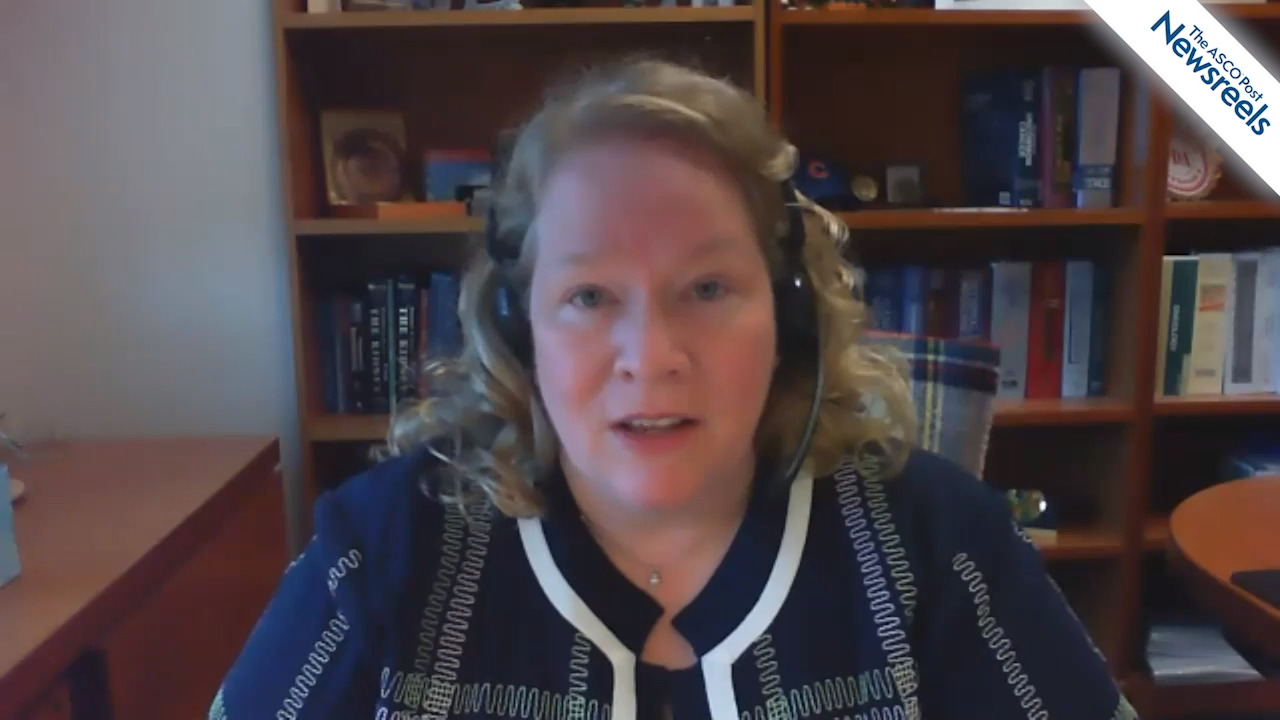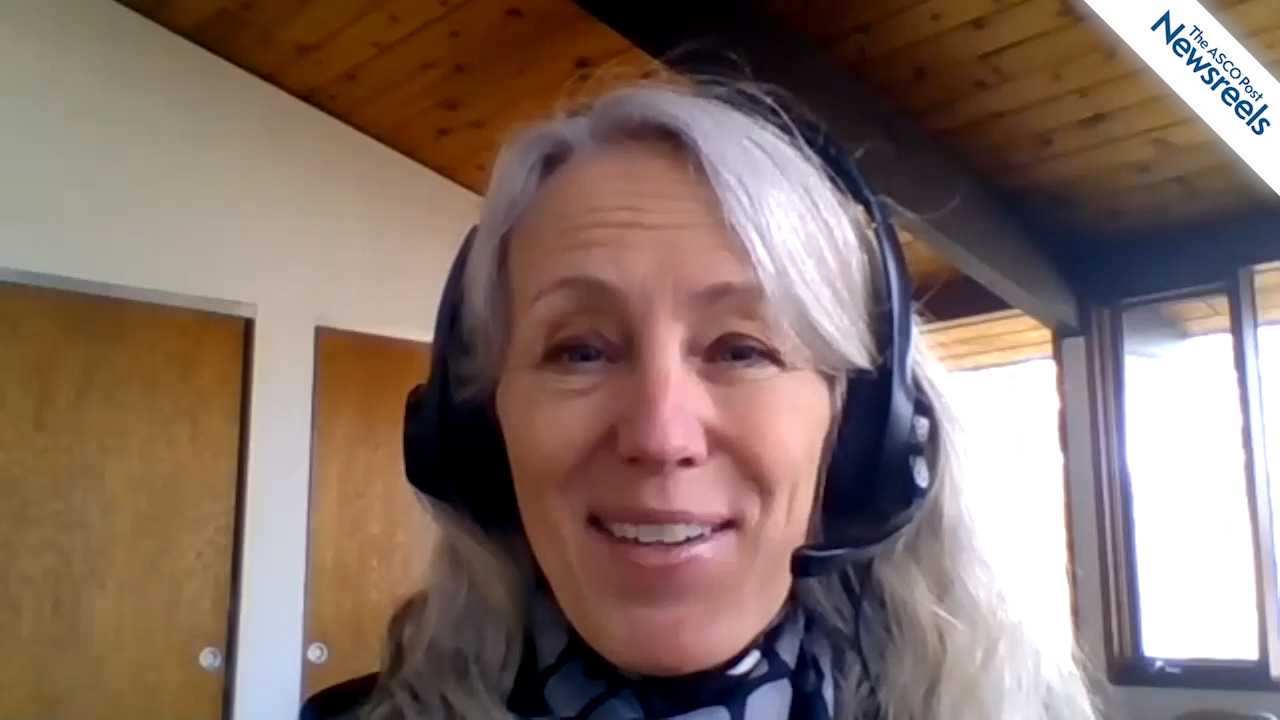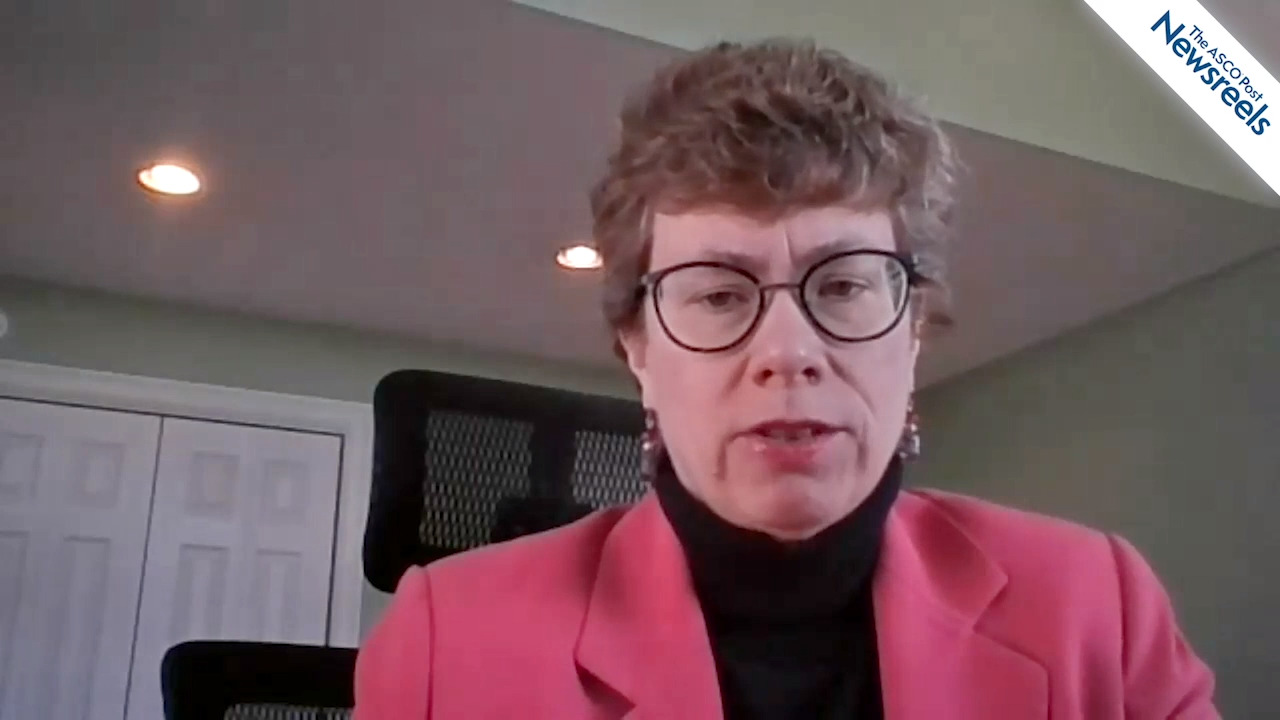Thomas K. Varghese, Jr, MD, on the Effects of the COVID-19 Pandemic on Cancer Care
NCCN 2021 Virtual Annual Conference
Thomas K. Varghese, Jr, MD, of Huntsman Cancer Institute at the University of Utah, summarizes a panel discussion on how the COVID-19 pandemic has interrupted cancer screenings, when telemedicine works and when it doesn’t, opening alternative care sites in the community, and the emotional and mental toll the coronavirus has taken on health-care providers.
The ASCO Post Staff
Susan M. Swetter, MD, of Stanford Cancer Institute, discusses molecular prognostic tests for cutaneous melanoma, which may improve staging accuracy, reduce unnecessary sentinel lymph node biopsies, and inform decisions on surveillance imaging and/or adjuvant therapy.
The ASCO Post Staff
Arlene O. Siefker-Radtke, MD, of The University of Texas MD Anderson Cancer Center, discusses the changing therapeutic landscape in which atezolizumab, avelumab, and pembrolizumab have either been approved or are under review for treating urothelial bladder cancer in the metastatic, superficial, and adjuvant settings.
The ASCO Post Staff
Eric Jonasch, MD, of The University of Texas MD Anderson Cancer Center, discusses the several hereditary renal cell cancer syndromes, the importance of surveillance for both renal and nonrenal manifestations, and the treatment options available.
The ASCO Post Staff
Lori J. Wirth, MD, of Massachusetts General Hospital Cancer Center, discusses the common molecular alterations across thyroid cancer subtypes; targeted treatments for BRAF V600E–mutant, NTRK–fusion positive, and RET–altered disease; and optimal therapies for patients with multiple types of thyroid cancer.
The ASCO Post Staff
Jennifer R. Brown, MD, PhD, of Dana-Farber Cancer Institute, discusses treatment choices for patients with relapsed or refractory CLL/SLL, when to stop therapy due to adverse events, BTK inhibitors and their second-generation counterparts, the need for ways to manage disease progression on novel drugs, and minimal residual disease as a predictor of response.





